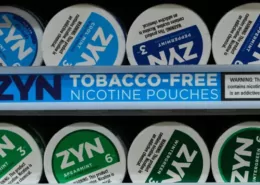Can Vaping Help You Quit Smoking? The Evidence Suggests Yes
Quitting smoking remains an immense challenge. But an analysis of over 300 clinical trials suggests nicotine vaping and certain medications offer the highest success rates for smokers trying to kick the habit long-term.
The extensive research demonstrates vaping’s vast potential as a smoking cessation aid and provides clarity on the relative effectiveness of various quitting options.
Assessing the Evidence on Vaping for Smoking Cessation
In an effort to provide clearer guidance on effective quit methods, researchers performed a major analysis of clinical trials examining smoking cessation aids. The selected randomized controlled trials collectively included more than 150,000 adult smokers seeking to quit.
The trials evaluated a variety of interventions including nicotine vaping devices, nicotine replacement products, and prescription medications. Nicotine vapes, varenicline, and cytisine led to the highest smoking abstinence rates over 6 to 12 months.
“Our findings provide clear evidence of the effectiveness of nicotine e-cigarettes and combination nicotine replacement therapies to help people quit smoking,” said senior author Jamie Hartmann-Boyce, assistant professor at the University of Massachusetts Amherst.
This real-world evidence affirms vaping’s immense potential to give smokers their best shot at quitting cigarettes for good.
How Vaping Compares to Prescription Medications
While nicotine vaping proved highly effective for long-term smoking cessation, two prescription medications – varenicline and cytisine – performed comparably in trials. However, these drugs have limited accessibility currently.
Varenicline, sold under the brand name Chantix, faces global shortages restricting availability. Cytisine awaits regulatory approval in the US and UK but shows tremendous promise for quitting smoking based on international trial results.
“We’re in a weird position where we’re saying these are the top three most successful, but actually only one of them is widely available at the minute and that’s e-cigarettes,” said lead author Nicola Lindson of the University of Oxford, highlighting vaping’s easy access.
So for the millions of smokers urgently needing support to quit, nicotine vaping offers a readily available and highly effective option with success rates rivaling these hard-to-access medications.
Vaping Demonstrates Advantages Over Conventional NRT
In addition to competing with prescription drugs, vaping significantly outperformed conventional nicotine replacement therapy (NRT) like patches and gum.
Combination NRT such as using the patch with gum or lozenges worked reasonably well for smoking cessation but fell short of vaping’s quit rates. Mono NRT comprising just one product like the patch ranked even lower. Unassisted cold turkey quitting proved least effective by a wide margin.
“The evidence is clear on the benefits of medicines, cytisine and varenicline, but these may be harder for some people to access at the moment,” said Hartmann-Boyce, powerfully underscoring the case for accessible vaping options.
For many smokers, vaping better replaces the rituals and nicotine experience of cigarettes compared to NRT products. This supports vaping’s superior real-world performance for switching completely away from smoking.
The Need for Ongoing Research Remains
Given the relative novelty of vaping devices, the authors highlighted the need for continued research assessing potential long-term effects beyond the 6 to 12 month scope of most trials analyzed.
But they assert the totality of current evidence decisively confirms vaping’s value for smoking cessation over the critical initial stages of quitting and beyond. Further studies will build on this proof of effectiveness.
Key Considerations Around Vaping Access
Researchers acknowledged concerns around vaping like youth uptake warrant ongoing monitoring. But they strongly emphasized ensuring adult smoker access to vaping as a lifesaving smoking cessation tool backed by scientific evidence.
“What we would always recommend is that people should be encouraged to use e-cigarettes to stop smoking if they’ve already smoked,” advised Lindson. “But it’s best not to use them if you have never smoked, because they’re not going to be completely risk-free — they’re just, we believe, a lot safer than smoking.”
While long-term impacts require further assessment, this landmark analysis decisively confirms vaping’s immense value as a smoking cessation aid among adult smokers. The findings send a clear public health message that vaping can offer smokers their best chance at quitting cigarettes for good.
This article is for informational purposes only and is not meant to offer medical advice.
- Kazakhstan Seizes 150k Illegal Vapes in Almaty Raid - July 30, 2025
- Brazil Police Crack Down on E-Cigarette Smuggling - July 30, 2025
- Experts Urge South Africa to Adopt Science-Based Vape Policies - July 30, 2025









